Record-breaking heat, frigid ice, snow bump COVID from No. 1
It would take a lot to dislodge the ongoing COVID-19 pandemic as the biggest story of the year, but 2021 delivered with a shockingly severe heat wave that struck the Pacific Northwest this summer with record-shattering temperatures only a few months after the region was paralyzed by a potent snow and ice storm.
Those instances of extreme weather received the top billing among staffers at The Columbian as we looked back on the stories of 2021.
That’s not to say COVID-19 was absent from the conversation. Far from it. The pandemic and its impacts on families, students, workers, businesses and the culture at large was central to half of our top 10 stories.
Other stories included the tragic line-of-duty death of Clark County Sheriff’s Office Sgt. Jeremy Brown, the continuing struggle with chronic homelessness and rising housing costs and an open-mic conversation that hastened the end of a Clark County judge’s career.
One twist on our list this year is that the number of significant stories that arose resulted in an unusually large number of tie votes.
Here are our top stories of 2021.
—Mark Bowder, Metro Editor
Enlarge
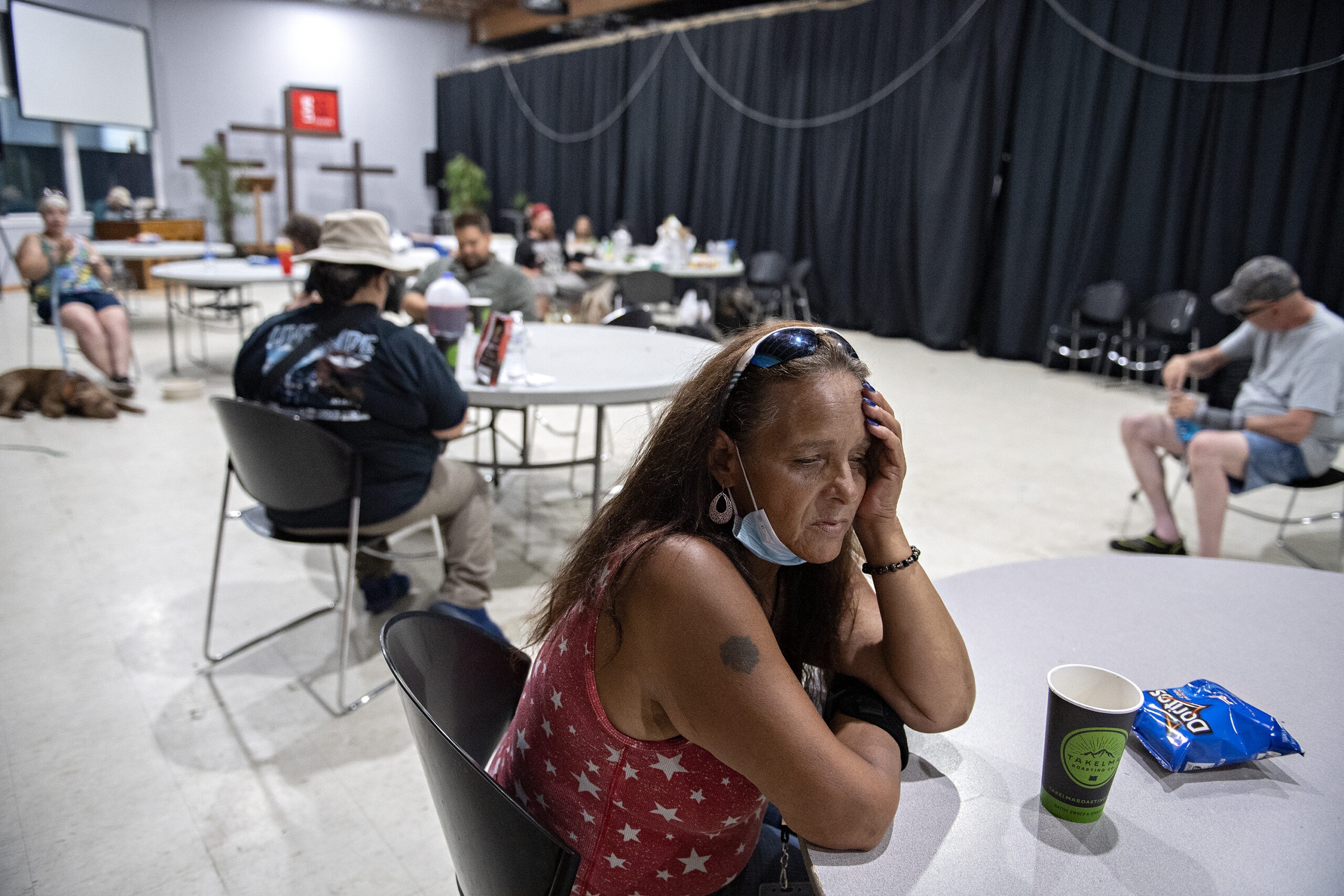
Amanda Cowan/The Columbian files
1. Weather extremes
It was a year of record highs and unusual lows — temperatures, that is.
A February snow and ice storm made for some late season winter excitement, as people broke out their sleds and dusted off their fort-making skills.
As fun as the snow was, it also knocked out power for tens of thousands of residents and created some nasty traffic pile-ups. Officials warned drivers to stay home and stay off the roads if possible. A Portland man died after his car hit a patch of ice and went over the railing on the Interstate 205 bridge. He was identified as Antonio Amaro Lopez, 57, and police said he had left his family’s Hazel Dell restaurant around 5 p.m. before the fatal crash.
A June heat wave shattered the area’s record high temperatures and, again, tested the area’s resiliency against extreme weather.
Temperatures topped out at 115 degrees at Pearson Field, singeing vegetation while shattering Vancouver’s all-time high of 108 degrees set in 2009. People flocked to lakes, rivers and splash pads to stay cool.
Temperatures climbed in people’s homes, as well, and many lacked air conditioning for some relief. The Washington State Department of Health identified 78 likely heat-related deaths linked to the heat wave. In 2020, seven people died from the summer heat.
—Becca Robbins
Enlarge
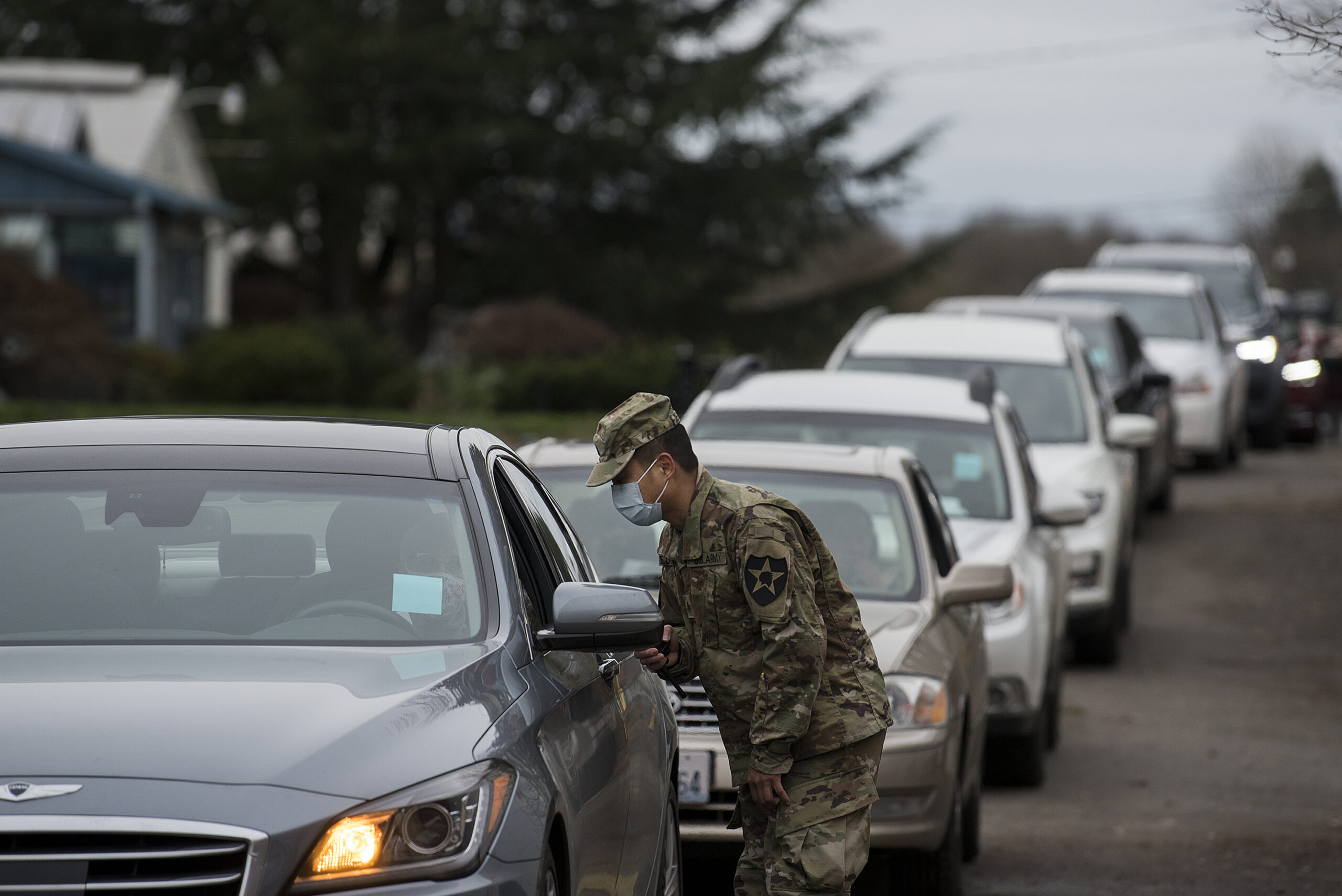
Amanda Cowan/The Columbian files
2 (tie). COVID-19 roller coaster
The first COVID-19 vaccines began rolling out in January, filling Clark County — and the world — with hope and optimism.
By the end of May, more than 40 percent of Clark County residents 16 and older were fully vaccinated.
The vaccines worked: COVID-19 cases started to fall, and mandates started to lift. Masks came off in most indoor and outdoor settings. Businesses reopened. Large events took place. For the first time in 15 months, disease activity significantly declined.
It didn’t last.
As COVID-19 cases fell, so did the number of people going to getgetting vaccinated.
In July, an alarming development surfaced: the highly contagious delta variant was sweeping through the country, especially through unvaccinated populations.
By late August, the delta variant accounted for 95 percent of all COVID-19 cases in Washington.
Cases surged. Hospitals reached capacity. Gov. Jay Inslee reimposed some mandates. Local businesses suffered whiplash.
In September, COVID-19 activity reached its highest level on record.
The delta variant continued to wreak havoc throughout the fall. Even so, some things returned to relative normalcy. Schools opened. Restaurants, theaters and gyms welcomed customers. Large gatherings occurred.
Now, despite fewer and fewer vaccines being administered daily, COVID-19 activity is slowly declining, but the omicron variant threatens to skyrocket cases and overwhelm understaffed and overworked hospitals once again.
As the pandemic hurtles into its third year, the best way to slow the spread of the disease remains the same, according to Public Health officials: get vaccinated, mask up and avoid crowded places.
—Dylan Jefferies
Enlarge
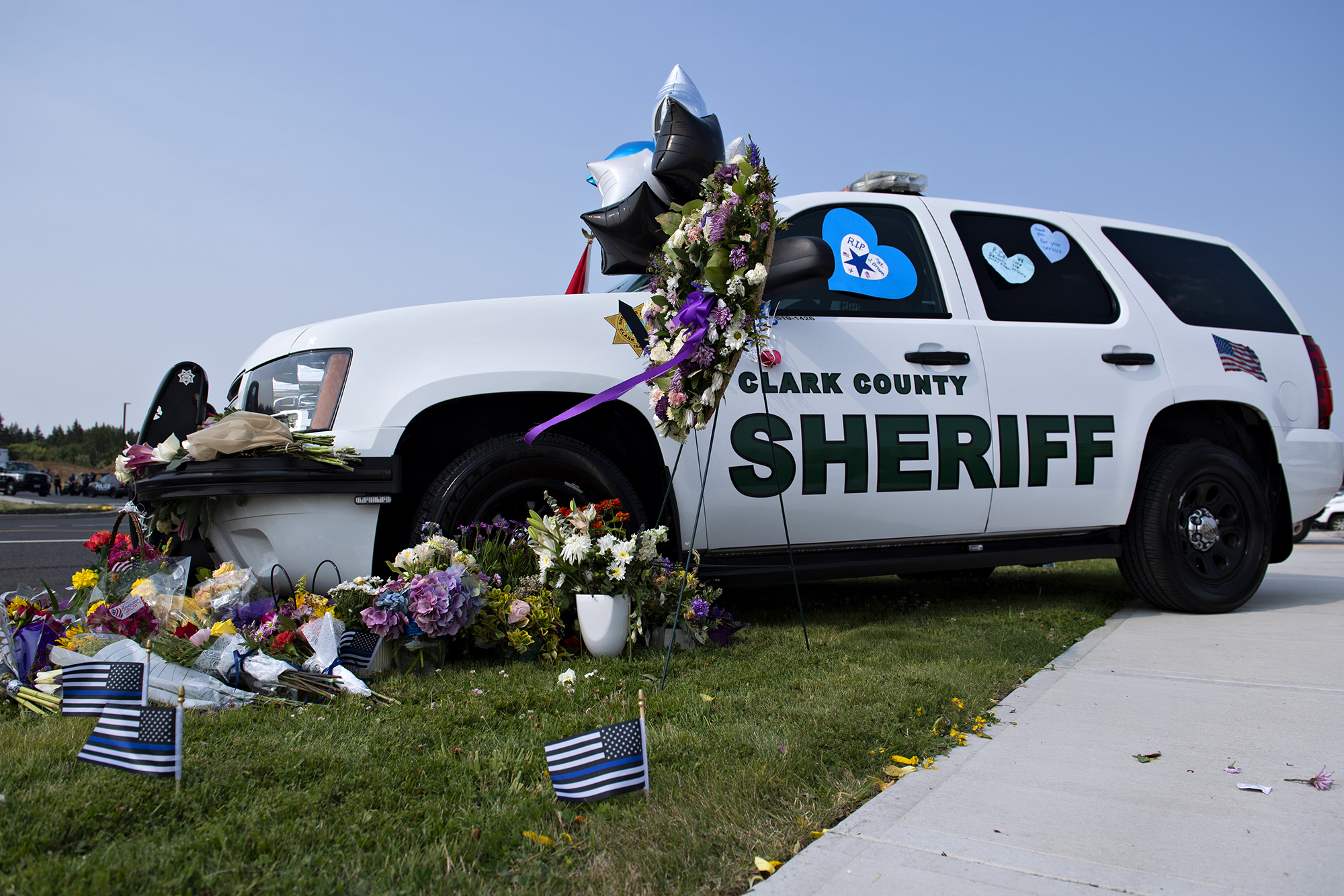
Amanda Cowan/The Columbian files
2 (tie). Line-of-duty death of CCSO Sgt. Jeremy Brown.
Thousands of people came together in August to honor Clark County Sheriff’s Office Sgt. Jeremy Brown, who was fatally shot in the line of duty while conducting surveillance July 23 at an east Vancouver apartment complex.
A procession of hundreds of emergency vehicles traveled from Clark College, up Interstate 5 to ilani for Brown’s funeral.
Four people are facing murder charges in connection with the detective’s slaying, and at least two others are facing charges stemming from the cache of stolen firearms that authorities were tracking at the time Brown was shot.
Investigators say Misty Raya, 35, broke into a Hazel Dell storage unit in early June and stole about 30 firearms and 20,000 to 30,000 rounds of ammunition.
Police say she, her husband, and her brother-in-law went to the apartment of her friend Lani Kraabell on July 23 to coordinate buyers for the stolen guns. Raya’s brother-in-law, Guillermo Raya Leon, 26, was reportedly paranoid they were being followed and went outside to confront Brown, whom he believed was an undercover officer.
The two exchanged gunfire, before Raya’s husband, Abran Raya Leon, 28, drove the trio away from the apartment complex, according to court records. Brown was found suffering a gunshot wound to the chest in his unmarked Jeep.
Trials for all of the defendants are scheduled for next year.
—Jessica Prokop and Becca Robbins
Enlarge
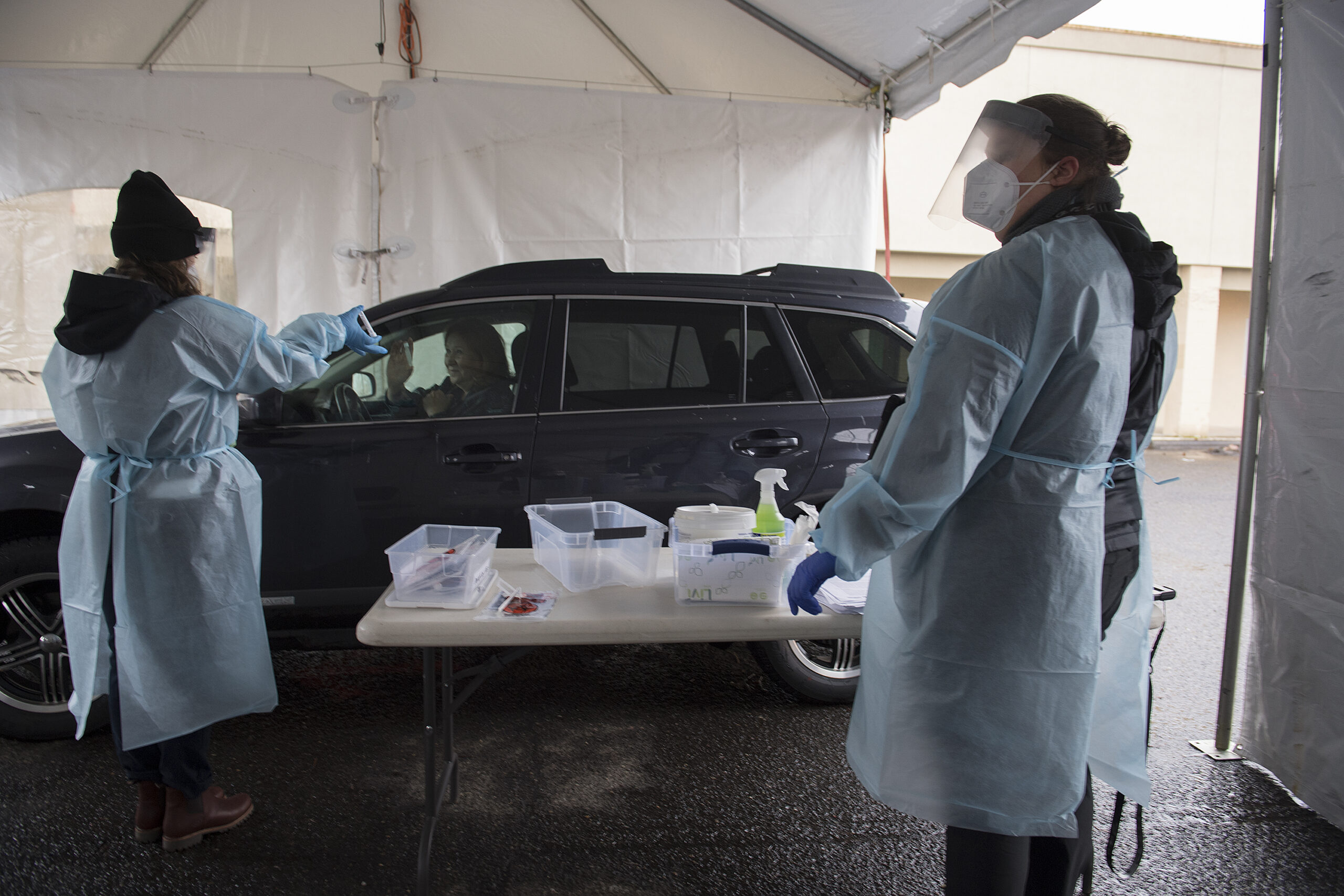
Amanda Cowan/The Columbian files
4 (tie). Clark County COVID-19 deaths surpass 500, total cases approach 47,000
In November, Clark County reached a grim milestone: 500 deaths related to COVID-19. As the year ended, that number neared 600.
The mounting death toll comes as the total number of cases identified in the county since the pandemic began approaches 47,000.
The number of deaths is a stark reminder of the toll the pandemic has taken upon the community over the past two years.
Five hundred people. Parents, children and friends. Business owners, co-workers and colleagues. Health care workers, civic leaders and entrepreneurs.
It is an incalculable loss for the community.
The pandemic isn’t over. Deaths are climbing. Cases are soaring. And the omicron variant threatens to make things even worse.
The pandemic has become political. People disagree about masks, vaccines and the disease itself.
But the great loss of human life due to the pandemic is undebatable.
Five million people have died from the disease worldwide, including 800,000 in the United States.
Five hundred people have died in Clark County, and their lives will not be forgotten.
—Dylan Jefferies
Enlarge
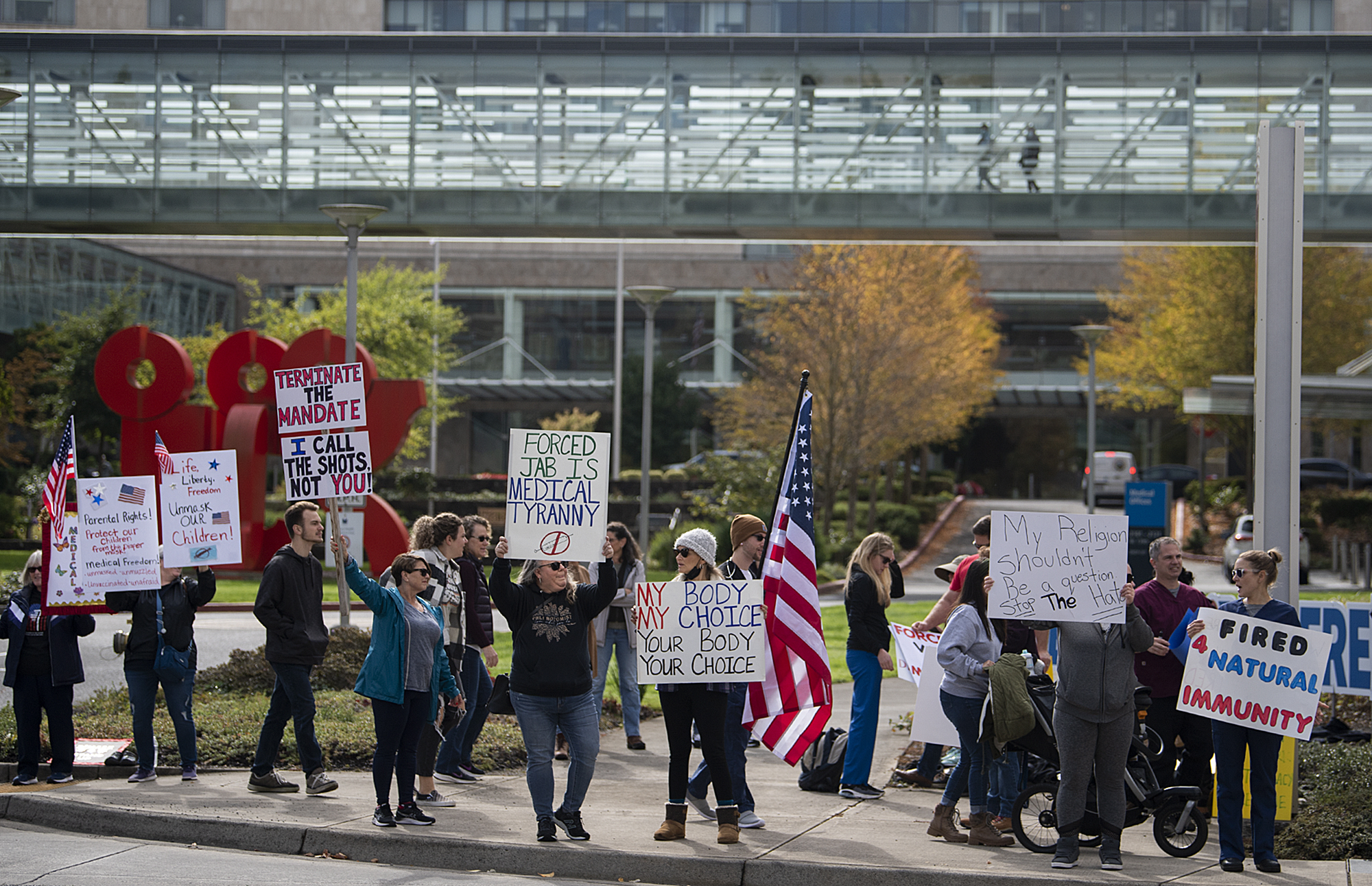
Amanda Cowan/The Columbian files
4 (tie). COVID-19 culture war
If there’s one new twist in the social impact of the COVID-19 pandemic, it’s the anti-vaccine/anti-mask protest. While opposition to COVID mandates certainly got its start in 2020, the protest movement seemed to reach its zenith this year.
Opponents of vaccine and mask mandates lined the sidewalks at schools in Ridgefield and Washougal, while others gathered at city halls and even the home of Battle Ground Mayor Adrian Cortes (who wasn’t there at the time).
Among those attending protests were elected officials and candidates who will be up for election in November, including Clark County Council Chair Eileen Quiring O’Brien, 17th Legislative District Rep. Vicki Kraft and 3rd Congressional district candidate Heidi St. John.
The anti-mask/anti-vaccine stances seem to have backfired for some while benefiting others. Incumbent Battle Ground City Council member Brian Munson, who proposed a “medical freedom” ordinance for the city prohibiting mask and vaccine requirements, lost his seat to challenger Troy McCoy.
Perhaps no campaign highlighted the division and hostility between the anti-mask/anti-vax groups and candidates than longtime Washougal School District board member Donna Sinclair’s bid for reelection. Sinclair was frequently criticized on social media by groups like Washougal Moms, who claimed Sinclair was acting against the interests of children and tried to silence parents. Although Sinclair denied the allegation, she ultimately lost her seat to challenger Sadie McKenzie.
Anti-vax/anti-mask rhetoric even landed Washougal physician assistant Scott Miller in hot water with the state licensing board. Miller, who runs a popular practice for children, had his license suspended after the state said he prescribed drugs to treat COVID symptoms to patients he hadn’t seen and interfered with care for patients hospitalized for COVID-19.
—Shari Phiel
Enlarge
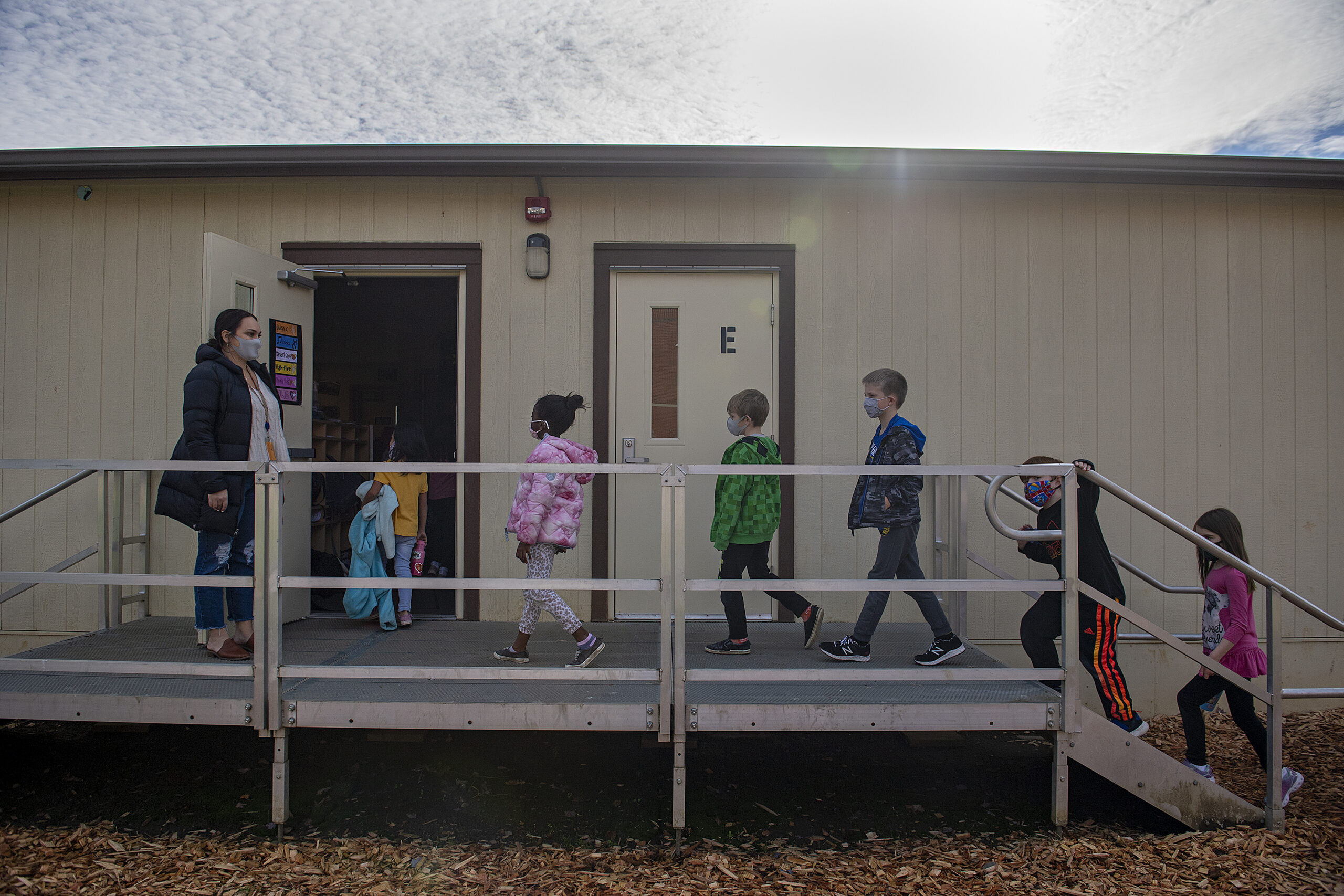
Amanda Cowan/The Columbian files
6 (tie). Schools reopen to in-person instruction; sports and some activities return.
The sudden shift to remote learning defined education in 2020. A year later, as we started to learn to live and adapt through new stages of the COVID-19 pandemic, schools found ways to safely bring students back into the classroom in 2021.
Masks, vaccinations and a host of new health and safety protocols were some of the most controversial issues at school board meetings as major districts reopened their doors to students in August. This year would be the third school year afflicted by the pandemic.
“It’s going to look normal,” said Mary Templeton, the superintendent of Washougal School District. “That’s what we’re seeking, and that’s what schools are going to look like.”
Throughout Washington, students were required to remain masked while in school, a rule that State Superintendent of Schools Chris Reykdal plans to maintain throughout the 2021-22 school year.
Though vaccinations weren’t mandated yet for students, all Washington school employees were required to show proof of vaccination or an approved exemption by Oct. 18.
Over 99 percent of employees in Clark County’s two major school districts complied with the mandate — a trend that was largely seen statewide.
Sports and other extracurricular activities returned, too, with a handful of special masking requirements and safety protocols. Schools played through shortened seasons with limited travel so that some districts played against primarily local teams.
Nonetheless, the return to schools and fields alike was a breath of fresh and familiar air for both students and their communities.
— Griffin Reilly
Enlarge
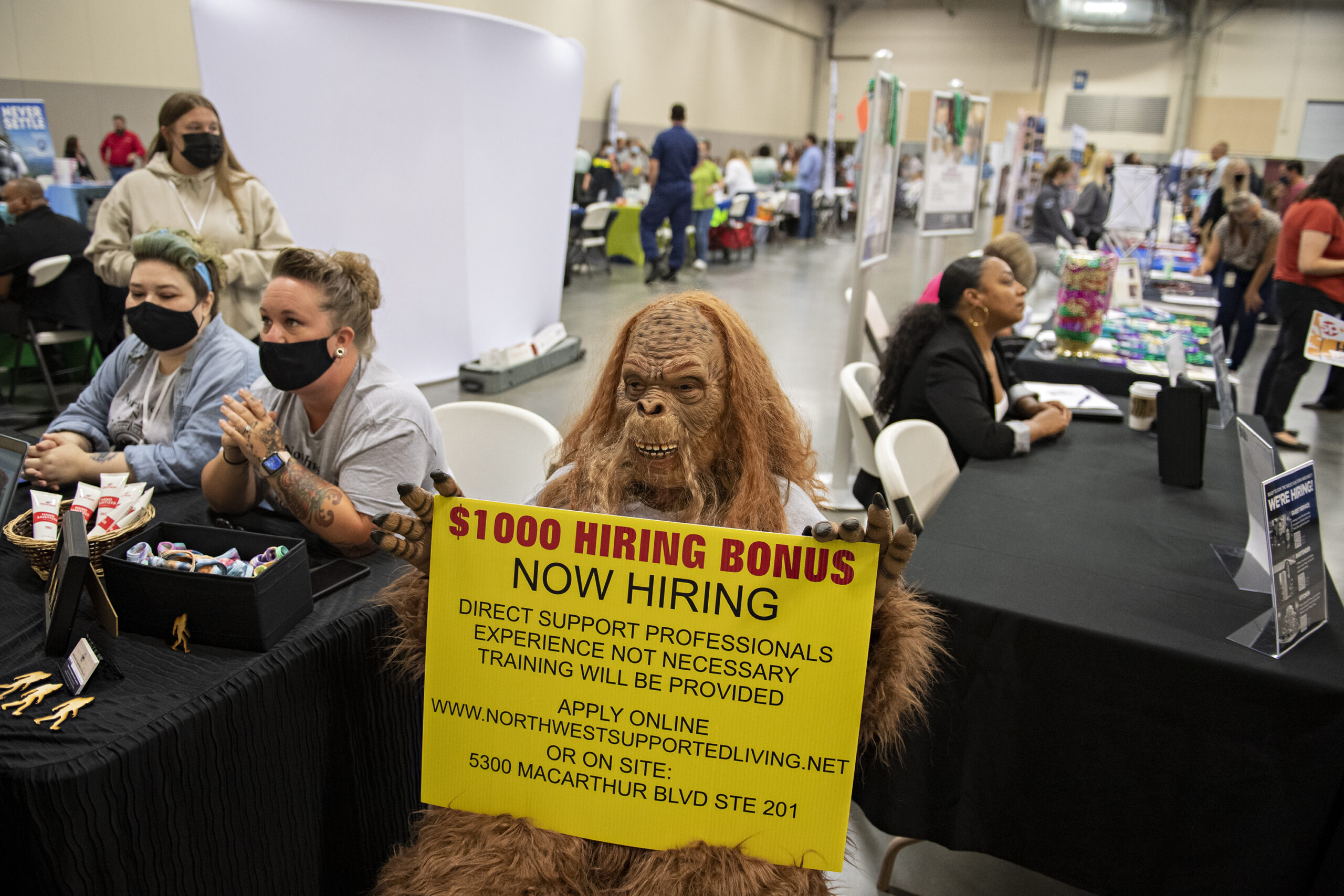
Amanda Cowan/The Columbian files
6 (tie). Job market swings from high unemployment to worker shortages.
At the beginning of the year, Clark County’s job market was seeing a steady trickle of returning workers. Jobless claims were declining, but as businesses began to post job openings, they had fewer applicants.
Many former workers were collecting unemployment while they sought employment in a new industry, much of it remote where they could work from home, especially if they had children in remote education.
Around midyear, it became clear that there was a labor shortage, and workers were quitting at such a high rate that the societal shift was dubbed “The Great Resignation.” Low-wage labor work became increasingly harder to fill, and the year ended with similar issues. By October, the number of workers in the county surpassed pre-pandemic levels, partly due to an increasing population.
Remote, freelance work became much more appealing to some Clark County millennials as many baby boomers decided to retire, and those factors contributed to the shift, although it’s hard to grasp how much those factors contributed.
“The question of labor market shortages is tricky,” said Scott Bailey, regional economist for Southwest Washington. “It’s complex and probably differs by industry and occupation.”
As of early December, about 1,690 people in the county were still filing repeated unemployment claims, which was close to pre-pandemic levels. The county added over 10,000 jobs this year, 30 percent of which were in leisure and hospitality, which includes hotels and restaurants.
—Will Campbell
Enlarge
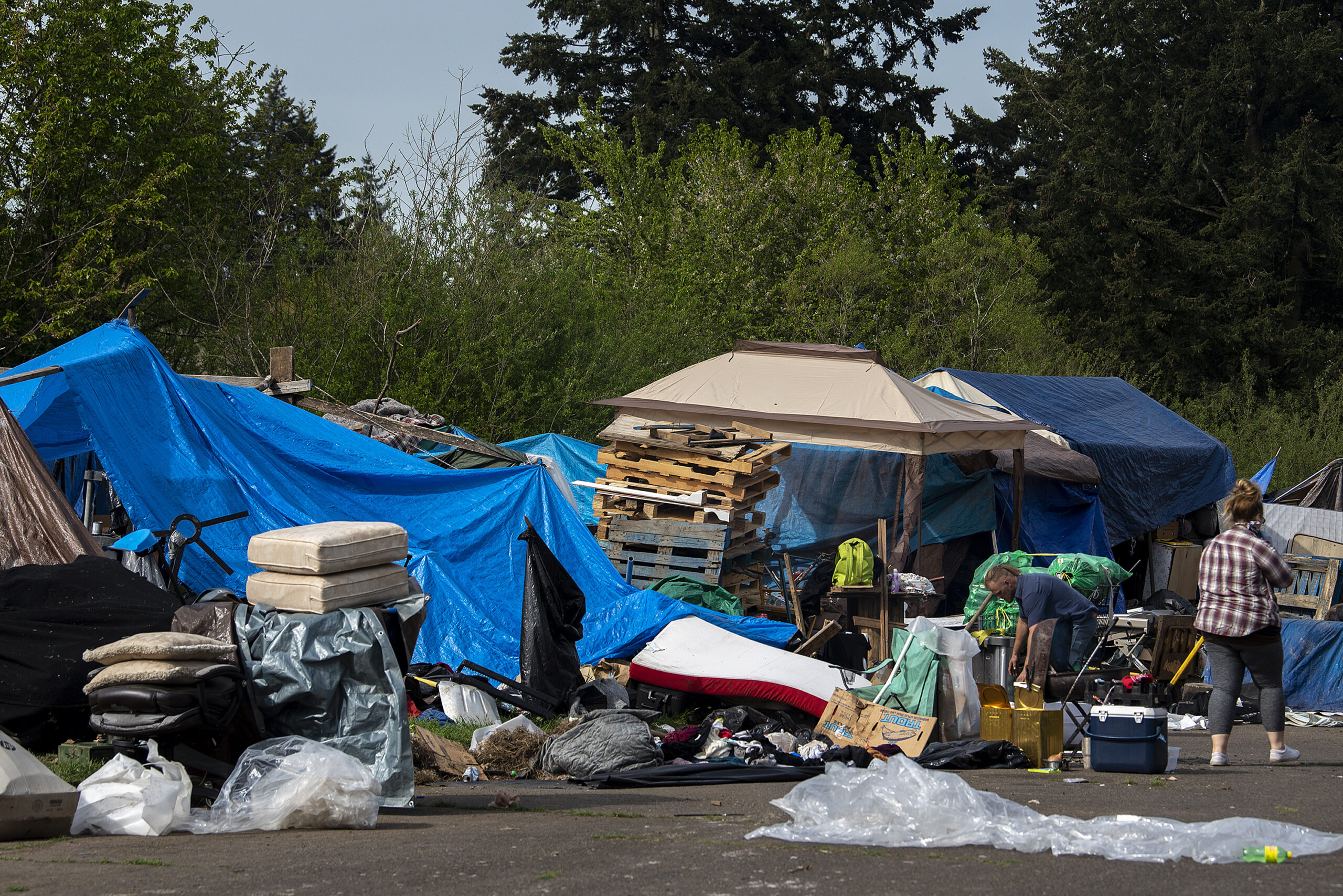
Amanda Cowan/The Columbian files
8 (tie). Homeless response undergoes dramatic changes.
Homelessness continues to be a pervasive issue in communities nationwide, and it has only been exacerbated by the COVID-19 pandemic. Clark County is at the head of combating this concern in the region and has seen shortcomings along the way but continues to address it head-on.
After the trials and tribulations of the city’s well-meaning yet short-lived Navigation Center, it was officially closed in March 2020. More than a year and a half later, the Vancouver City Council authorized the sale of the facility on Grand Boulevard to FVRLibraries for $3.7 million. Proceeds from the sale were directed to the city’s general fund, where they can be used to fund homeless services.
Despite this unsuccessful attempt to address Vancouver’s homeless crisis, it did not dissuade city staff and other community leaders from addressing the issue.
The city’s first villagelike Safe Stay Community began operation in December. The space provides 20 modular structures that can house up to 40 people, as well as resources from local agencies to help residents resolve their homelessness. It is one of many prospective Safe Stay Communities to come.
In March, The Elwood opened its affordable housing to formerly chronically homeless people to help them regain stability. Its goal went beyond supplying a warm and dry home to tenants, as the building itself was designed with trauma-informed principles to alleviate the adverse psychological effects of being homeless.
These projects alone will not solve homelessness, but the initiatives in combination with compassion from the community can make a difference.
—Lauren Ellenbecker
Enlarge
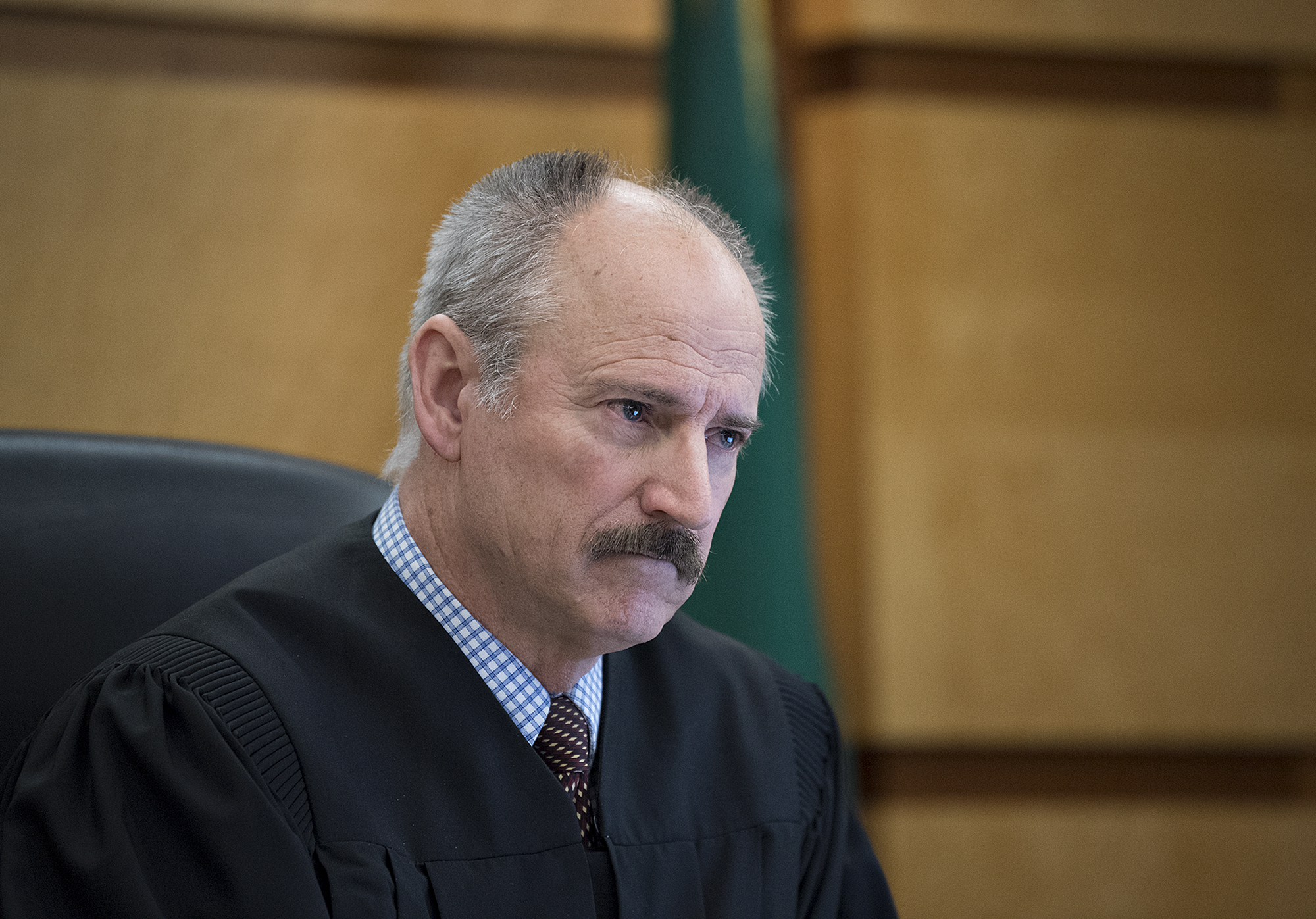
Amanda Cowan/The Columbian files
8 (tie). Judge’s comments about shooting victim spark firestorm, end his career.
Former District Court Judge Darvin Zimmerman’s comments — caught on courtroom cameras in March disparaging a local Black man killed by sheriff’s deputies and his family — raised concerns of systemic racism and bias within the justice system and Clark County.
Following criticism and calls for his resignation, Zimmerman, 70, retired from the bench June 30. He had temporarily stepped away in mid-March after self-reporting his comments to the Washington Commission on Judicial Conduct. His son is a sheriff’s deputy and a member of the interagency drug task force that was trying to arrest Kevin Peterson Jr., who was shot Oct. 29, 2020, in Hazel Dell.
Zimmerman initially apologized for his remarks, but he was unrepentant in a letter he sent to the county announcing his retirement.
The commission said it received dozens of complaints about the incident in the days and weeks that followed news media reports about his comments.
Following a confidential investigation, the commission announced Dec. 3 it had filed a statement of charges against Zimmerman.
The commission said Zimmerman violated the code “by making comments about a controversial incident and the related impending case(s) that displayed racial bias, indicated a lack of impartiality, and implied that he had a personal channel of communication with the sheriff’s department regarding pending and impending cases.”
The case is pending.
— Jessica Prokop
Enlarge
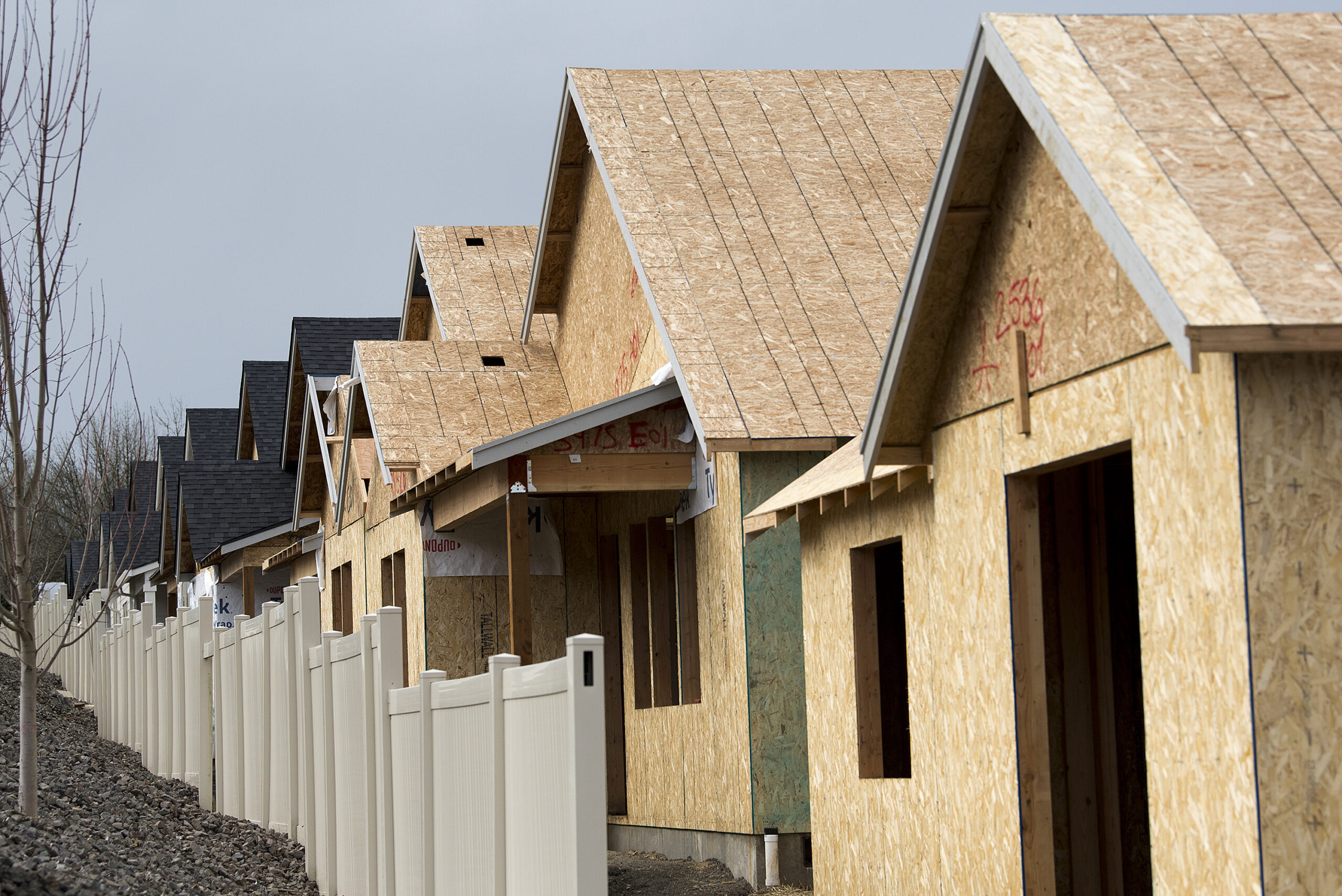
Amanda Cowan/The Columbian files
10. Housing costs continue to soar; new apartments do little to ease crisis.
In a year when 533 new houses and 1,844 new multifamily units became available to buy and rent in Vancouver, the cost to provide shelter for people and their families continued to climb across the county.
Rents have nearly doubled in the past 10 years, rising from an average of $684 a month for a one- or two-bedroom apartment in 2011 to more than $1,300. And it’s not just rents that have skyrocketed; home prices are continuing to soar. The average sale price for a home in Clark County rose in September from $530,200 to $545,000. But just a year earlier, the average price was $519,500.
“We have months of unsatisfied buyers waiting to buy a house,” Mike Lamb, a broker at Windermere Stellar in Vancouver, told The Columbian in November. “We have over a year’s worth of buyers waiting.”
The demand for housing is driving seemingly ever-constant construction of new houses, apartments and condominiums around the county. An effort is also being made to build more affordable housing units.
Ginn Group’s nonprofit Ginn Gives, for example, is developing a 50-unit affordable housing apartment complex along Fourth Plain Boulevard in Vancouver. Ginn plans to build 250 affordable housing units in Southwest Washington by 2030.
— Sarah Wolf
An odd year in Clark County
These stories stuck with staffers at The Columbian even through they didn’t make our Top 10 list.
Christian Bale to play John Bishop: In August, New Regency film company announced that Oscar winner Christian Bale, who’s played the role of Batman and former Vice President Dick Cheney, is set to portray Vancouver megachurch pastor turned drug smuggler John Bishop on the big screen.
Gamestop stocks: Local stock traders participated in a coordinated social media campaign of buying Gamestop stock that made it gain 1,700 percent in value.
Forbes accidentally ranks Vancouver as the second-best place to visit during the pandemic: “Was it Walla Walla instead?” asked Vancouver Mayor Anne McEnerny-Ogle when she read a Forbes article ranking Vancouver as the second-best place to visit during the pandemic. It was most likely a mistake.
Snakes at Lacamas Park: Camas police found eight pythons at Lacamas Park in July. They were likely abandoned there.
Dazzling sky show over Pacific Northwest was SpaceX rocket booster falling out of orbit: A SpaceX rocket booster falling out of orbit lit up the sky above Clark County, causing a bit of a stir.
Exotic cat complicates Felida house fire: An exotic cat weighing around 65 pounds bit a firefighter’s hand during a house fire in Felida.
Reusable toilet paper: Yes, another toilet paper story. La Center entrepreneur makes and sells reusable toilet paper to reduce environmental impact.
Human compost: A habitat restoration near Battle Ground uses commingled human compost to help build back the lands. It’s the only place in the world where they do this.
UFO rental home: You can rent a UFO as an Airbnb in Hockinson.
I-5 Bridge earthquake video: The group tasked with building a new Interstate 5 bridge released a detailed video rendering of how the current bridge would collapse during a large earthquake.
—Will Campbell
More top stories of 2021
Top 10 stories on the web
The top 10 stories by Columbian reporters on columbian.com in 2021 by total pageviews:
1. Burnt ends and blowing smoke: Brian Kelly at Vancouver home of Notre Dame recruit when news of LSU departure broke (Dec. 3)
2. Clark County sheriff’s deputy killed in Vancouver (July 23)
3. La Center woman’s reusable toilet paper on a roll (Sept. 6)
4. Swiss Pie is swell, perfect dish for late summer meals (Sept. 15)
5. Interstate 5 south closed at the bridge; traffic rerouted (Dec. 6)
6. Fallen Clark County deputy identified; shooting suspect remains at large (July 24)
7. VooDoo Doughnut coming to Vancouver in November (Aug. 6)
8. Authorities ask Clark County residents to take down bird feeders (Feb. 11)
9. Woman displays handgun during confrontation at Vancouver Mall (June 14)
10. Both Chuck’s Produce locations for sale (Dec. 2)
Readers vote for the top 10 stories of 2021
The Columbian’s readers voted for what they believe were the top 10 stories of 2021 in Clark County:
1. Culture war heats up (mask and vaccination protests, insurgent candidates).
2. Weather extremes (snow-ice storm, record high heat).
3. Line-of-duty death of Clark County Sheriff’s Sgt. Jeremy Brown.
4. Housing costs continue to soar; new apartments do little to ease crisis.
5. Schools reopen to in-person instruction; sports and some activities return.
6. Job market swings from high unemployment to worker shortages.
7. Homeless response changes (Navigation Center closes, mall hotel project, tiny homes, supported campsites).
8. COVID roller coaster (vaccine drive, brief summer of relief, variants drive numbers up again).
9. Local police shootings predominantly affect people of color
10. Clark County COVID-19 deaths surpass 500, total cases exceed 45,000.